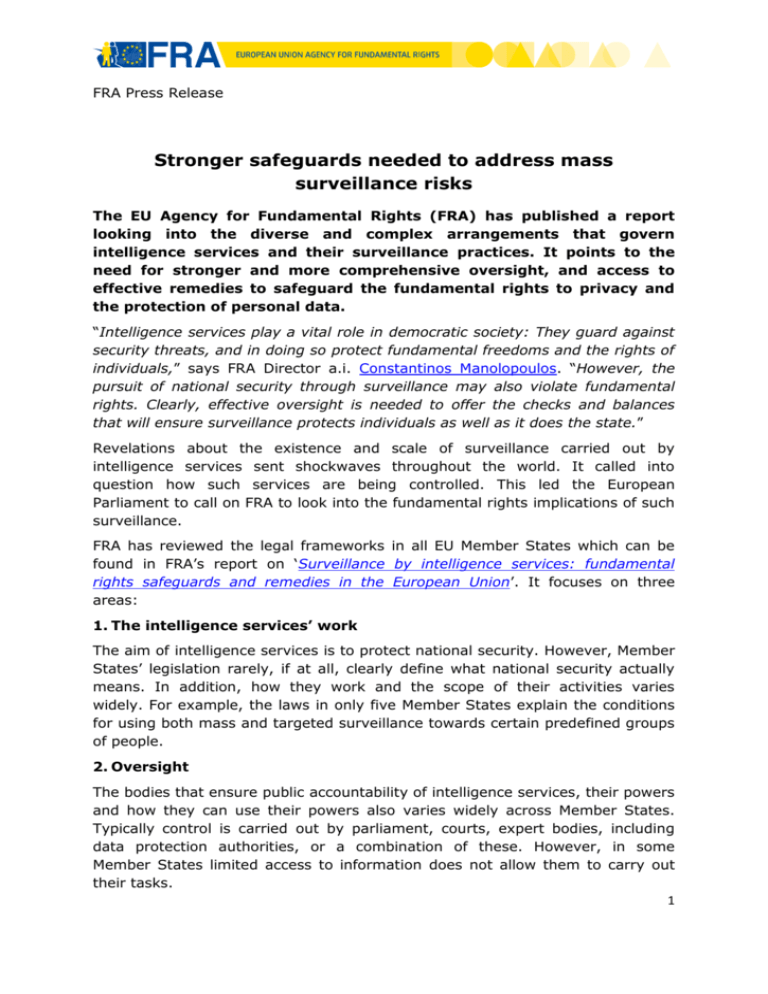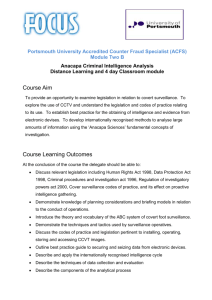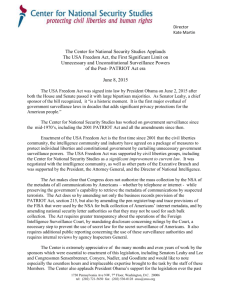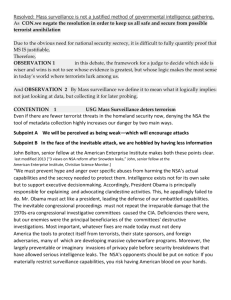pr-2015-surveillance_en
advertisement

FRA Press Release Stronger safeguards needed to address mass surveillance risks The EU Agency for Fundamental Rights (FRA) has published a report looking into the diverse and complex arrangements that govern intelligence services and their surveillance practices. It points to the need for stronger and more comprehensive oversight, and access to effective remedies to safeguard the fundamental rights to privacy and the protection of personal data. “Intelligence services play a vital role in democratic society: They guard against security threats, and in doing so protect fundamental freedoms and the rights of individuals,” says FRA Director a.i. Constantinos Manolopoulos. “However, the pursuit of national security through surveillance may also violate fundamental rights. Clearly, effective oversight is needed to offer the checks and balances that will ensure surveillance protects individuals as well as it does the state.” Revelations about the existence and scale of surveillance carried out by intelligence services sent shockwaves throughout the world. It called into question how such services are being controlled. This led the European Parliament to call on FRA to look into the fundamental rights implications of such surveillance. FRA has reviewed the legal frameworks in all EU Member States which can be found in FRA’s report on ‘Surveillance by intelligence services: fundamental rights safeguards and remedies in the European Union’. It focuses on three areas: 1. The intelligence services’ work The aim of intelligence services is to protect national security. However, Member States’ legislation rarely, if at all, clearly define what national security actually means. In addition, how they work and the scope of their activities varies widely. For example, the laws in only five Member States explain the conditions for using both mass and targeted surveillance towards certain predefined groups of people. 2. Oversight The bodies that ensure public accountability of intelligence services, their powers and how they can use their powers also varies widely across Member States. Typically control is carried out by parliament, courts, expert bodies, including data protection authorities, or a combination of these. However, in some Member States limited access to information does not allow them to carry out their tasks. 1 Specialised oversight bodies can also be hindered in their work by limited competence, powers, expertise, resources and independence. For example, data protection authorities in only seven Member States have the same powers over intelligence services as they do over other organisations that control data. Comprehensive and effective oversight that can hold intelligence services to account would lessen rights violations and the need for remedial action. This includes combining oversight from various bodies and ensuring that oversight fully covers all aspects of the work of intelligence services. 3. Remedies The complexity of who to turn to for help has made effective redress difficult for victims of rights violations. This is further compounded by the secrecy surrounding intelligence work. In addition, many non-judicial bodies that can offer support have insufficient expertise to tackle intelligence issues, and limited independence and powers to investigate, to access materials, or to issue binding decisions. To read the report and summary, see: Surveillance by intelligence services: fundamental rights safeguards and remedies in the European Union - Mapping Member States’ legal frameworks. For further information please see the media Q&A or contact: media@fra.europa.eu Tel.: +43 1 580 30 642 Notes to editors: The report was based on data from all EU Member States on the legal framework governing surveillance collected by FRA’s multidisciplinary research network, FRANET. Additional input came from existing publications and experts. The report does not cover surveillance for law enforcement or for military intelligence. The EU Agency for Fundamental Rights (FRA) provides evidence-based advice to EU and national decision makers, thereby contributing to more informed and better targeted debates and policies on fundamental rights. 2







